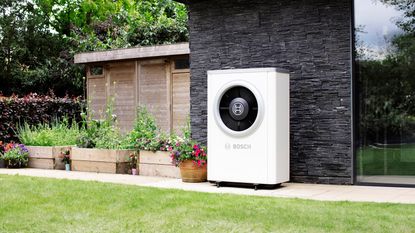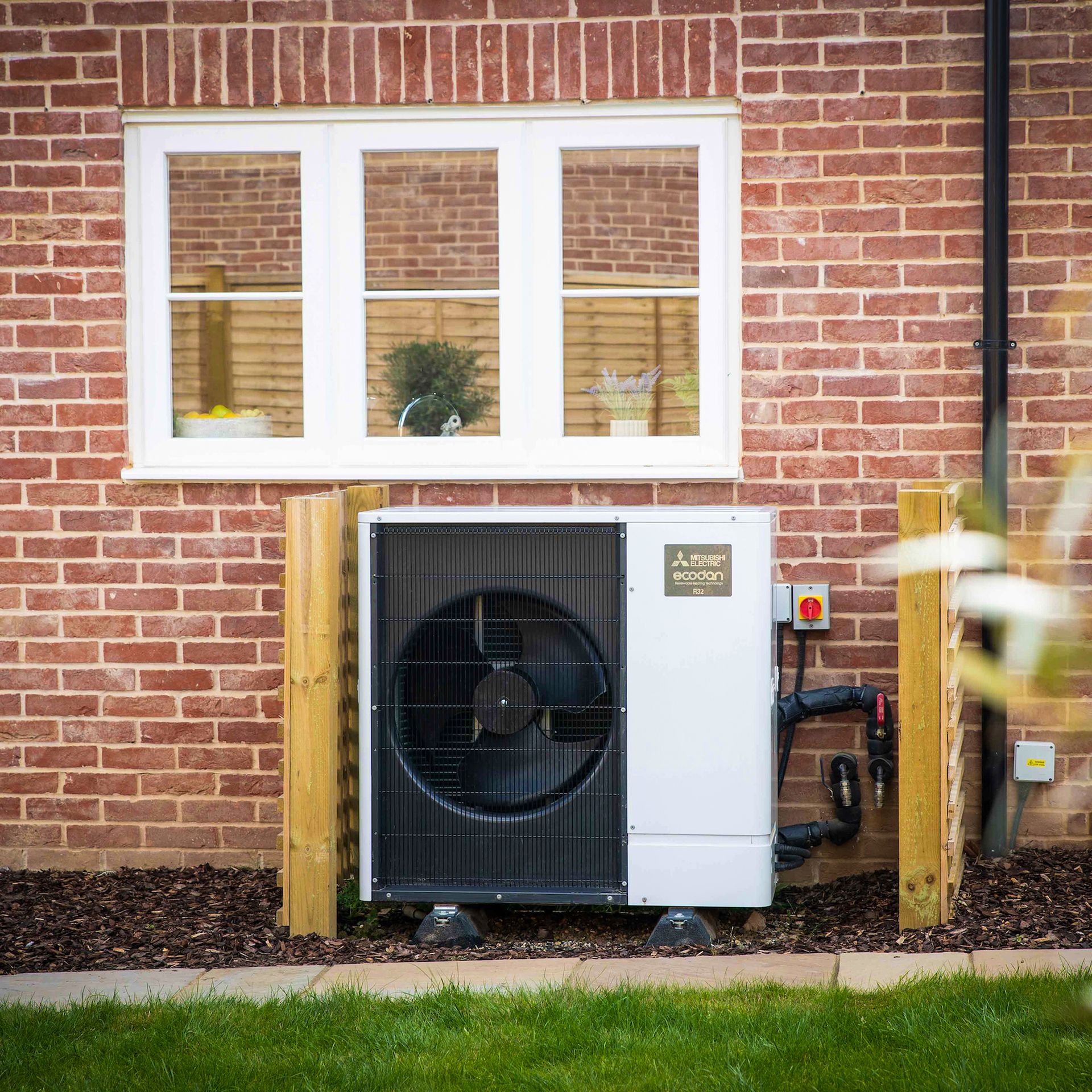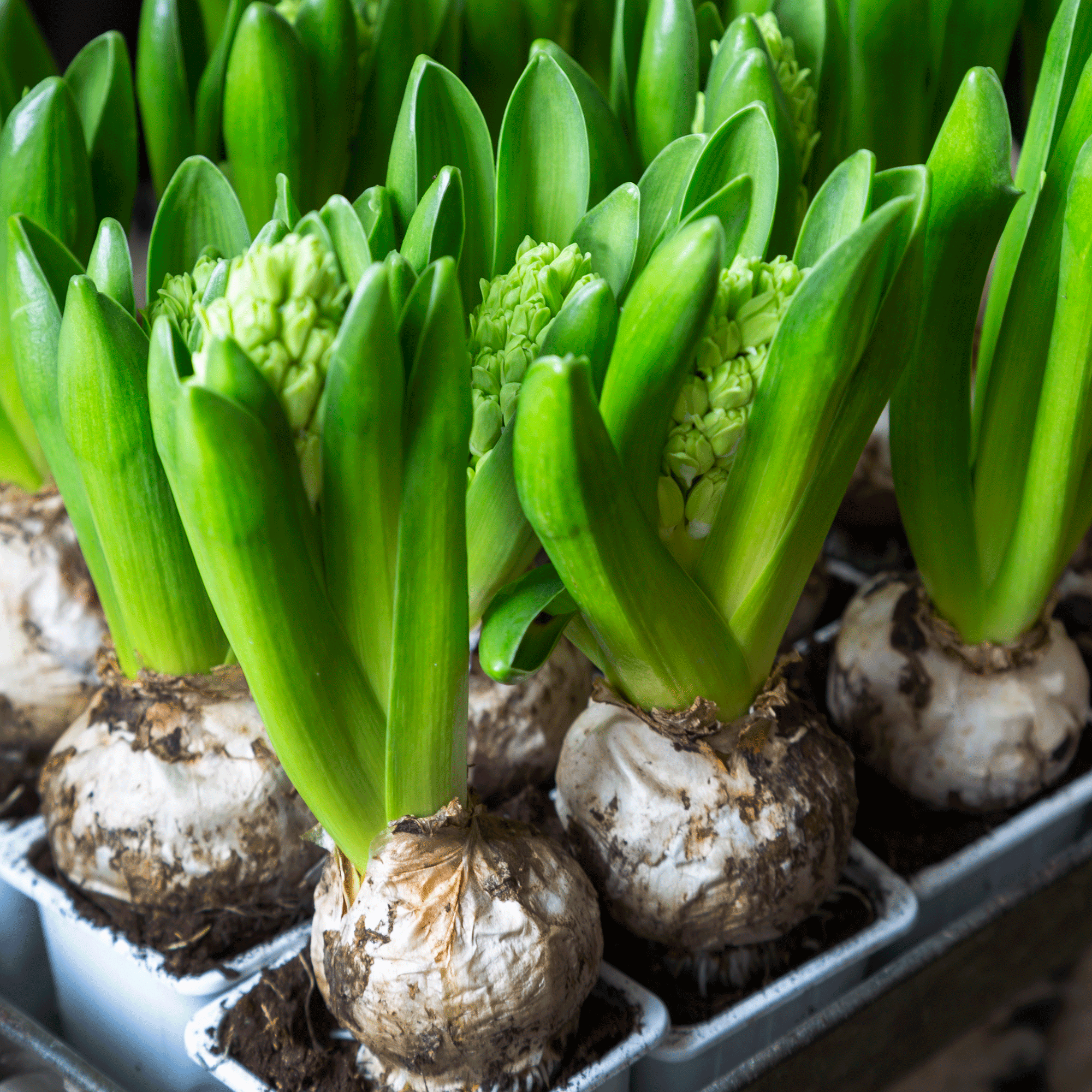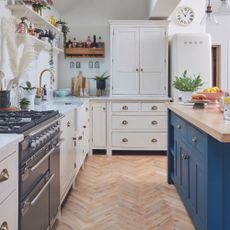Heat pumps explained – what is a heat pump and should you get one?
All you need to know about heat pumps – and which is best for your home


Thinking about heat pumps? Energy bills are rising at a terrifying rate. There are no 'cheap deals' to be had and, even if energy costs stop growing, they look unlikely to come back down again. The only sure way to cut your utility bills is to use less energy. A heat pump may be the answer.
Using less energy saves you money and lets you take action on the climate emergency at the same time. Lower energy use means lower carbon emissions (or use a renewable electricity tariff for zero carbon emissions).
Currently, heating our homes accounts for around 14% of the country’s total carbon emissions, with more than 85% of homes relying on natural gas to power their boilers, according to Mitsubishi Electric, which makes A+++ rated Ecodan air source heat pumps. In the heat pumps vs gas boilers debate, heat pumps represent an alternative to gas boilers.
'Heat pumps offer a solution to a greener way of heating which helps to future proof your home,' says Joseph Raftery, Heating Product Manager, Samsung Climate Solutions.
'Latest statistics from the National Grid show that it’s currently operating on close to 50% renewables and this will only grow,' adds Joseph Raftery. 'Within the UK we have wind, tidal and solar growing in contributions to the electric network and heat pumps are one of the only ways to efficiently heat your home via the electrical national grid network. We are leaving an environmental legacy for future generations.'
Heat pumps explained

A heat pump replaces your gas boiler, so you get away from gas. Now is the right time to look at alternative fuels for heating our homes because gas prices are rising fast and gas is a fossil fuel. In fact, the UK government plans to phase out gas boilers, full stop. No-one is preventing you replacing yours (yet) but gas boilers will be banned in new build homes from 2025.
The good news is that there are Government grants to help. A grant brings the cost of a heat pump down considerably, so it pays for itself sooner.
We’ve demystified the pros and cons of air source and ground source heat pumps, and the grant schemes that help with their costs. But first, is your home ready?
Is my home right for a heat pump?
Before considering any sort of heat pump, you need to insulate a home. There may be grants to help with this too. Insulation is a great investment because it pays for itself relatively quickly. That’s why experts recommend a 'fabric first' approach before fitting a heat pump.
Good insulation means the warmth from your heat stays in your home, rather than escaping through the loft, walls, windows, floors. It also increases the chance that you can use a heat pump with minimal changes to your existing system of pipes and radiators.
Insulation can also lessen the impact of extreme heat in the summer, which is increasingly an issue here in the UK. Our ageing housing stock wasn’t built for hot weather.
Is a heat pump a good investment?

A heat pump increases the value of your home. Buyers increasingly consider energy efficiency when they choose a home. For example, they’ll look at the EPC (Energy Performance Certificate) to see what they can expect from energy bills. This takes everything into account: your lighting, insulation, heating and more. It sets out how your home performs and also its potential if you were to improve these things.
Insulating brilliantly, what’s called a 'fabric first' approach, is a good investment whatever heating system you use but it can bring down your energy demands in a way that’s a brilliant fit for a heat pump.
'The key thing is to start off with a design that reduces energy demand and then you meet that demand with a low carbon option, which realistically is low carbon electricity and heat pumps,' says architectural designer Charlie Luxton.
Adding insulation, a heat pump, even energy-saving light bulbs can boost your EPC rating. This in turn can improve your home’s value. It’s not the primary reason to fit a heat pump, but it helps. After all, if your heat pump will pay for itself in, say, five years but you end up selling before then, you want to get your money back.
Think of it like a loft conversion. Done right, the money you spend is added to the house’s value, so it’s less an expense and more an investment. The same is not true for a replacement gas boiler.
Even mortgage companies agree.
Mortgages last decades, so do heat pumps, and our impact on the environment lasts far longer. So some lenders are taking the long view and either incentivising homebuyers to pick greener homes or contributing towards costs of green home improvements, such as heat pumps, if you have a mortgage with them.
The schemes will change but ones to look at right now include Coventry Building Society, Halifax and Nationwide.
What is a heat pump?

A heat pump takes energy from the air or ground, outdoors, and transfers it indoors to heat your home. See below for how the technology works. A heat pump can replace your gas boiler (or oil boiler if you live in a rural home, off the gas network).
Heat pumps use electricity but they’re supremely efficient. In fact, they magic up energy from thin air. OK, it’s not magic but they give out more energy in heat than they use in electricity.
'Heat pumps can achieve efficiencies of 500% or more, providing 5kW of heat for every 1kW of electricity,” says Lee Hermitage, EMEA Marketing Director for Honeywell Advanced Materials, which makes refrigerants used in heat pumps. 'A new gas boiler operates at about 90% efficiency only, producing less than 1kW of heat per unit of gas.'
At the time of writing, electricity costs around four times as much as gas, so the running costs of a heat pump are a bit lower than a gas boiler. But gas is a finite resource (and a fossil fuel), so its price is likely to rise further. Meanwhile electricity prices should be stable and ultimately go down as we get ever better at generating it from sun, wind and waves.
In years to come, experts predict a heat pump will save you even more money on energy bills.
What is a refrigerant?
Talking about refrigerant, if you’re choosing between similar heat pumps at similar prices with similar heat outputs and guarantees, ask about the refrigerant. This is the substance that circulates in the pipes (for example, CFCs were the refrigerants famously phased out because of their impact on the ozone layer).
Ask what refrigerant is in each heat pump you’re considering and – crucially – what its global warming potential (GWP) is. The number basically tells you how bad it is, relative to carbon dioxide (GWP 1). The GWPs of refrigerants can differ widely. The smaller the number the better.
For example, the Viessmann Vitocal 150-A uses R290 (propane) refrigerant. It’s one of the most climate-friendly and cost-effective available, with a global warming potential of less than 1. (Some refrigerants have GWPs in the thousands.)
How do heat pumps work?
You already have a heat pump in your home. More than one. The technology is what makes fridges, freezers and air conditioning units work. Here’s how.
Your fridge has pipes containing a refrigerant: a substance that changes easily from liquid to gas and back again. It’s pumped around pipes in a loop, in and out of the fridge. As it enters the fridge, it expands to become a gas. This evaporation makes it colder, so it cools the air around it. As it leaves the fridge, it’s compressed, squashed so it becomes a liquid. This condensation makes it warmer, so it heats the air around it. That’s why the pipes on the back of your fridge are warm.
As your fridge whirrs, that constant cycle – expanding and compressing the refrigerant – makes one space cooler and one space warmer. Air conditioners work the same way (cooling indoors and transferring that heat energy outdoors). And heat pumps use the same process in reverse, bringing the heat in.
There are two types of heat pump that can heat your whole home: air source and ground source. They use the same process to take heat from outdoors and transfer it indoors. Once the heat is indoors, it’s used to warm up water in a well-insulated storage tank. That way, the energy can be used to heat the whole home, using radiators or underfloor heating.
The brilliant, and counter-intuitive, thing about heat pumps is that they work in all weathers. Even on a cold day in the UK, the air outside still contains heat energy that can be taken and used to heat your home.
What types of heat pump are there?

Air source
These work like an aircon unit in reverse, so you have a unit outdoors (about the size of a washing machine) to collect heat and another indoors. You also need an indoor unit (about the size of a boiler) and a hot water storage tank. So if you have a combi boiler right now, you’ll need to find a bit of extra space. The tank is the size of a fridge-freezer, so ideal for an airing cupboard.
Ground source
Ground source are similar, but instead of a visible unit outdoors they collect heat via pipes underground. They’re much more expensive to install but, once they’re there, there’s no visible outdoor unit, just an inspection cover in the ground for maintenance.
Air source versus ground source – which is better?
Air source
• Takes up some outdoor space – about the size of a washing machine
• No digging, less disruptive
• Less efficient
• More affordable
• Smaller Government grant
• Lots of models to choose from.
Ground source
• Requires lots more land but invisible outdoors because underground
• Lots of digging, more disruptive
• More efficient
• Much more expensive
• Higher Government grant
• Fewer models to choose from.
Which heat pump is best for my home?

Typical home? As a rule of thumb: most people should get an air source heat pump. These are relatively easy to fit to most homes. You need a modest amount of outdoor space, plus some space indoors for a water storage tank (you may have one already, but if you have a combi boiler you won’t have a tank, so you’ll need to find space for one). You probably don’t need planning permission.
Grand design? If you’re building a grand design, or doing major remodelling to your outdoor space and have good garden access, consider a ground source heat pump. Ground source heat pumps are even more efficient on average, because the ground temperature doesn’t change much seasonally.
Put simply: in the winter when you need central heating the most, the temperature underground is warmer than the air temperature, so it’s easier to extract heat from it. (The opposite is true in the summer, but we need the heat less in the summer.)
But ground source heat pumps are more expensive than air source because they require a big digging job. You either need to dig deep boreholes (a machine digs a narrow vertical hole up to 200m deep) or lay long “ground loop” pipes in trenches 1m below the surface over a large area.
Basically, if you’re embarking on a big project and you’ve always fancied getting behind the wheel of a digger, consider ground source. Otherwise, air source is the way to go.
Will a heat pump work in my home?
An important question to ask is whether a new heat pump will work with your existing radiators and pipes or not. The answer to that is complicated. A heating engineer needs to look at your system to advise (see our guide to heat pump grants for how to contact an MCS accredited installer) but here’s some general advice.
Heat pumps typically serve up a tank of hot water at 55°C whereas hot water from a gas boiler can be more like 70°C. So your existing radiators and pipes were designed for hotter water. This is why it’s best to insulate your home brilliantly before installing a heat pump and why the system will be scheduled differently. Radiators will be cooler but on for longer, rather than the “boom-and-bust” of scheduling radiators to be hot a couple of times a day.
You may be fine with your current radiators but if your heating engineer recommends larger replacement rads, these can appear the same size as old rads but discreetly have more panels.
'This does not mean extensive work is needed,' says Joseph Raftery at Samsung. 'In many cases changing single panel radiators to a double or triple radiator will give the room the same comfort heat at 45-55°C as the old one did at 70-80°C. By using radiators with a larger surface area, or underfloor heating, more heat can be delivered into the room without increasing the water temperature.'
Do heat pumps work with underfloor heating?

Heat pumps work brilliantly with underfloor heating, as 55°C is the perfect temperature. Underfloor heating is cosy, the heat rises to warm the room, and it does away with radiators so you save valuable wall space. If you’re refurbishing and fitting a heat pump, now’s the time to consider underfloor heating as an alternative to radiators.
'Underfloor heating (UFH) improves the efficiency of a heat pump because lower flow temperatures are required, and better airtightness stops heat from escaping,' says John Gilham, Group Technical Manager at Green Building Renewables.
Your existing pipework is probably fine. But if you have narrower 'microbore' pipes, that were installed in some properties in the 1980s, this could be too narrow and need upgrading, according to John Gilham. Again your heating engineer will check before recommending a system, so you know the total costs before you commit.
'Underfloor heating can warm a room using a lower heat – thereby consuming less energy and lowering your energy bills, which is something that homebuyers will find very attractive when looking for a new home, particularly with the current cost of living crisis,' says Mark Dowdeswell, Senior Category Manager at Uponor UK.
He adds that there are other benefits: 'Underfloor heating also requires very little maintenance. It does not need to be checked for air in the system or bled, if installed correctly.'
Finally, there are some heat pumps that run at the higher temperatures your existing system is used to. They may be less efficient as a result, but a heating engineer can advise on the pros and cons. The Viessmann Vitocal 150-A has a maximum flow temperature of 70°C. You could even use it with an existing cylinder, but a new one will likely have much better insulation. The Vitocal 151-A is the same but puts the pump and cylinder in a single unit.
Get the experts in
To apply for boiler grants, you must start with an MCS accredited installer. See our guide to heat pump grants. They’ll start by looking at your home and existing system.
'A qualified MCS heat pump installer should review the existing system first and check that it can deal with the heating demand and that the pipework and radiators are in a suitable condition,' says architect Bob Prewett.
'Existing systems should be flushed clean and pressure checked,' he adds. 'We have managed to reuse existing radiator systems for clients but generally only when installing insulation at the same time in order to reduce the heating load sufficiently so that the existing radiators can still cope with lower temperature water.'
He adds that the system design is important: 'Tanks should be located close to bathrooms and kitchens to minimise heat losses between the tank and shower etc. Historically in the UK, losses from long lengths of pipework have really increased wasted heat from hot water use.'
Get the Ideal Home Newsletter
Sign up to our newsletter for style and decor inspiration, house makeovers, project advice and more.

Caramel Quin is an award-winning journalist and professional nerd who tests technology for newspapers, magazines and online. She has written for Ideal Home since 2012. She prides herself on real-world testing and translating geek speak into plain English. Her pet hates are jargon, pointless products and over-complicated instruction manuals.
-
 Sam Thompson and Zara McDermott's 'brilliant design choice' redefines the ordinary all-white kitchen, say experts
Sam Thompson and Zara McDermott's 'brilliant design choice' redefines the ordinary all-white kitchen, say experts'It's a design strategy that effortlessly marries style with substance'
By Jullia Joson
-
 Can you plant bulbs in January? Garden experts have warning if you're planting spring bulbs late
Can you plant bulbs in January? Garden experts have warning if you're planting spring bulbs lateHave you missed the boat?
By Lauren Bradbury
-
 These are the things you should never store in a kitchen drawer, according to organisation experts
These are the things you should never store in a kitchen drawer, according to organisation expertsNot sure what to keep where in your kitchen? We’ve got you covered
By Lindsay Blair


